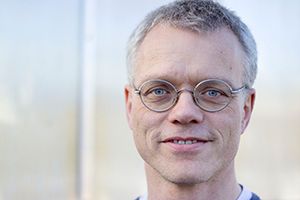Researchers at the University of Copenhagen have discovered a natural process they are calling ‘reverse photosynthesis’. They have observed how the energy in solar rays breaks down rather than builds up plant material, as happens in photosynthesis.
Sunlight is collected by chlorophyll, and when combined with a specific enzyme the energy breaks down plant biomass. The resulting product can then be used as a biofuel.
A game changer
By increasing production speed while reducing pollution, the discovery has the potential to revolutionise industrial production.
“This is a game-changer, one that could transform the industrial production of fuels and chemicals, thus serving to reduce pollution significantly,” said Claus Felby, the University of Copenhagen professor who headed up the research.
“It has always been right under our noses,” he said. “Photosynthesis by way of the sun doesn’t just allow things to grow – the same principles can be applied to break plant matter down, so that the immense energy in solar light can be used so that processes can take place without additional energy inputs.”
Faster and cleaner
David Cannella, Felby’s fellow researcher, said that “the discovery means that by using the sun, we can produce biofuels and biochemicals for things like plastics faster, at lower temperatures and with enhanced energy efficiency”.
The most promising financial aspect of the new process is the decrease in production time needed to process the building blocks of plastics and other products derived from petroleum. The petroleum process takes 24 hours. The reverse photosynthesis process can do the same job in 10 minutes.
Ongoing research
The researchers discovered that monooxygenases, a natural enzyme also used in industrial biofuel production, multiply their effectiveness when exposed to sunlight.
Additional research and development is required before the discovery can directly benefit society, but its potential is, according to Felby, “one of the greatest we have seen in years”.
READ MORE: Research could revolutionise biofuel business
The development was reported in the April 4 edition of the journal Nature Communications.
















